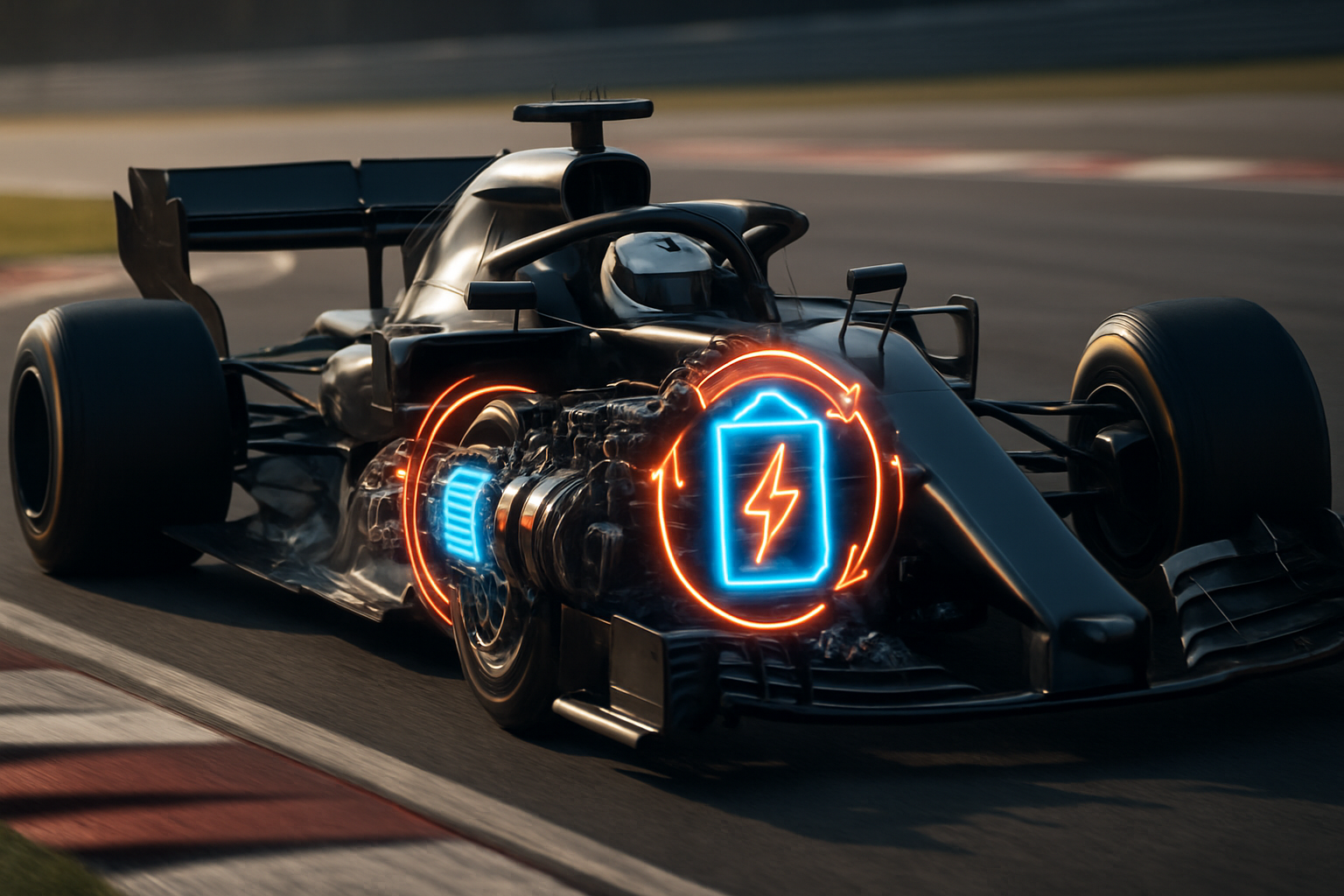Synthetic Fuels: The Silent Revolution in Motorsports
In the high-octane world of motorsports, a quiet revolution is brewing beneath the thunderous roar of engines. Synthetic fuels, once relegated to the realm of science fiction, are now emerging as a potential game-changer in racing circuits around the globe. This innovative fuel technology promises to reshape the landscape of competitive driving, offering a tantalizing blend of performance, sustainability, and tradition. As we delve into the world of synthetic fuels, we'll explore how this cutting-edge development is poised to redefine the future of motorsports while honoring its rich heritage.

The result is a fuel that is chemically identical to gasoline or diesel but with a significantly lower carbon footprint. This remarkable feat of chemical engineering allows synthetic fuels to be used in existing internal combustion engines without any modifications, making them an attractive option for motorsports teams looking to reduce their environmental impact without sacrificing performance.
A Legacy of Innovation in Racing Fuel
The pursuit of better, more powerful fuels has been a constant theme throughout motorsports history. From the early days of racing, when teams experimented with dangerous cocktails of ether and gasoline, to the modern era of highly refined racing fuels, the quest for the perfect blend has never ceased.
Synthetic fuels represent the latest chapter in this ongoing saga. They build upon decades of research and development in fuel technology, drawing inspiration from earlier experiments with alternative fuels like methanol and ethanol. However, synthetic fuels take this innovation to new heights, offering a solution that combines high performance with environmental consciousness.
Performance on the Track
One of the most exciting aspects of synthetic fuels in motorsports is their potential to deliver exceptional performance. Early tests have shown that these fuels can match or even exceed the power output of traditional racing fuels. This is largely due to their ability to be precisely engineered for specific engine requirements, optimizing factors such as octane rating, energy density, and combustion characteristics.
Motorsports teams are particularly interested in the consistency and reliability offered by synthetic fuels. Unlike petroleum-based fuels, which can vary in composition depending on their source, synthetic fuels can be produced to exact specifications every time. This level of control allows engineers to fine-tune engines with unprecedented precision, potentially unlocking new levels of performance and efficiency.
Sustainability in the Fast Lane
While performance is paramount in motorsports, the industry is increasingly aware of its environmental responsibilities. Synthetic fuels offer a compelling solution to reduce carbon emissions without compromising the essence of racing. By utilizing captured carbon dioxide in their production, these fuels can potentially achieve carbon neutrality, a significant step towards sustainable motorsports.
Moreover, the adoption of synthetic fuels could help preserve the heritage and tradition of motorsports in an era of increasing environmental scrutiny. As pressure mounts on industries to reduce their carbon footprint, synthetic fuels provide a pathway for racing to continue with its familiar sights, sounds, and smells, while significantly reducing its environmental impact.
Challenges and Opportunities
Despite their promise, synthetic fuels face several hurdles before widespread adoption in motorsports. The primary challenge is cost – currently, producing synthetic fuels is significantly more expensive than refining traditional petroleum-based fuels. However, as production scales up and technology improves, these costs are expected to decrease.
Another challenge lies in the energy-intensive production process of synthetic fuels. While the fuels themselves can be carbon-neutral, their production requires substantial amounts of renewable energy to be truly sustainable. This necessitates significant investment in clean energy infrastructure alongside fuel production facilities.
However, these challenges also present opportunities. The development of synthetic fuels for motorsports could drive innovation and cost reductions that benefit other sectors, such as aviation and shipping, which are also exploring synthetic fuels as a decarbonization strategy.
The Road Ahead
As synthetic fuels gain traction in motorsports, we can expect to see a cascade of effects throughout the industry. Race teams and engine manufacturers will likely invest heavily in research and development to optimize their powertrains for these new fuels. This could lead to a new era of innovation in engine design, potentially yielding technologies that could benefit consumer vehicles as well.
Furthermore, the adoption of synthetic fuels in high-profile racing events could serve as a powerful showcase for this technology, accelerating its development and public acceptance. Just as racing has historically been a testbed for automotive innovations that eventually make their way to road cars, synthetic fuels in motorsports could pave the way for broader adoption in everyday transportation.
In conclusion, synthetic fuels represent a fascinating convergence of cutting-edge chemistry, environmental consciousness, and the timeless thrill of motorsports. As this technology continues to evolve, it promises to write an exciting new chapter in the annals of racing history – one where the checkered flag waves for both speed and sustainability.





